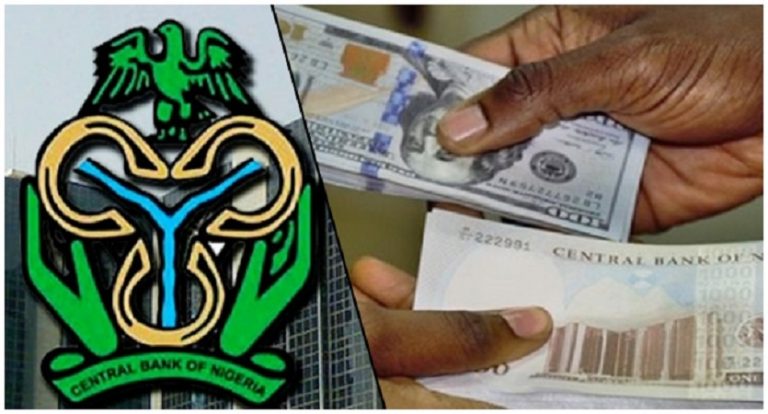
Against the backdrop of falling oil prices and a stubborn inflationary cycle, Nigeria’s foreign exchange market is undergoing a quiet but profound transformation.
The Central Bank of Nigeria (CBN), once the overwhelming force behind currency supply, is receding into a more advisory role as the market opens to broader participation and transparency. The numbers coming out of the first quarter of 2025 are telling a new story—one where policy, confidence, and market reform are beginning to realign after years of uncertainty.
Nigeria posted a net FX inflow of $15.20 billion in Q1 2025, up from $14.03 billion recorded in the same period of 2024. This improvement, though modest at a glance, speaks to a deeper structural shift. Total inflows in Q1 rose to $28.92 billion, an 18.68% increase year-on-year, while outflows jumped 32.72% to $13.72 billion.
Register for Tekedia Mini-MBA edition 19 (Feb 9 – May 2, 2026).
Register for Tekedia AI in Business Masterclass.
Join Tekedia Capital Syndicate and co-invest in great global startups.
Register for Tekedia AI Lab.
A rise in outflows often suggests market confidence—when businesses and investors feel secure enough to engage globally, repatriate profits, or fund imports. But the net inflow staying positive amid rising outflows points to a market that is both liquid and resilient. It’s also a sign that Nigeria may be turning a corner from years of foreign exchange dysfunction.
Market Turnover and Reduced CBN Intervention
For decades, Nigeria’s FX market has been tightly managed by the central bank, with multiple exchange rates creating opacity, arbitrage, and at times—hoarding. That model came under increasing pressure during the twin recessions of the Buhari era, exacerbated by pandemic disruptions and falling oil revenues.
Since mid-2023, the Tinubu administration, working closely with the CBN, has pushed ahead with reforms aimed at liberalizing the FX market. The unification of the naira in 2023 was a flashpoint. But by 2024, the CBN was already pulling back from its role as the dominant market supplier. Now in 2025, its direct participation accounts for just 2% of total turnover, a far cry from previous regimes.
Average monthly turnover in the FX market has also increased to $8.1 billion in the first quarter of 2025, up from $5.5 billion in 2024. That increase in volume reflects not only more transactions but more transparency and confidence in pricing—a critical ingredient in restoring trust in the market.
Month-by-Month Trends and Market Maturity
Dissecting the quarter, January 2025 saw inflows of $9.41 billion and outflows of $4.84 billion, producing a net inflow of $4.56 billion. February delivered the strongest showing, with inflows at $10.64 billion and a net surplus of $6.92 billion as outflows slowed to $3.72 billion. In March, inflows tapered to $8.88 billion while outflows rose to $5.16 billion, narrowing the surplus to $3.72 billion.
These month-to-month shifts are normal in any open FX system, often indicating seasonal trade activity, debt service cycles, and external pressures like changes in global commodity prices. However, the market’s ability to remain net positive across all three months underscores a growing maturity.
Oil Prices, FX Focus, and Policy Reorientation
Crucially, this shift in FX performance is happening as Nigeria’s most dependable source of FX, crude oil, continues to face market headwinds. Brent crude prices, which hovered around $100 per barrel in 2022, have softened to the $70–$80 range for most of 2024 and early 2025, squeezing revenues for oil-dependent economies like Nigeria’s.
Rather than leaning heavily on dwindling oil receipts, the CBN has tightened its focus on attracting alternative FX sources. Diaspora remittances, portfolio investments, and export diversification have taken center stage.
At the Nigerian Investor Forum held during the IMF/World Bank Spring Meetings in Washington DC, CBN officials highlighted these reforms as critical to Nigeria’s financial stability. They pointed to restored interbank trading, the elimination of backlogs, and broader market access as milestones. According to the apex bank, these are not just bureaucratic fixes. They’re aimed at unlocking investor confidence and bringing in dollars that are willing to stay.
A Look Back at 2024—and the Road Ahead
In 2024, Nigeria attracted $99.4 billion in total FX inflows, a 44% increase over the year before. Net flows were also up 58%, thanks to policy reforms and aggressive clearing of FX backlogs. That strong performance laid the groundwork for the gains seen in early 2025.
However, Nigeria’s overall economic health poses a serious challenge to this little progress. The oil market remains volatile, with prices falling below the country’s 2025 budget benchmark. Also, rising inflation continues to erode domestic purchasing power, while the naira, though more reflective of market forces, is yet to stabilize enough to anchor long-term investor confidence.
Although the transformation in Nigeria’s foreign exchange market has significantly contributed to high inflation, it has changed its storylines. For the first time in years, the story is no longer just about scarcity, speculation, or backlogs. There are signs that Nigeria’s FX market is no longer the black box it once was. It is adjusting, reacting, and most importantly—attracting capital even as the traditional flow of petrodollars slows.



